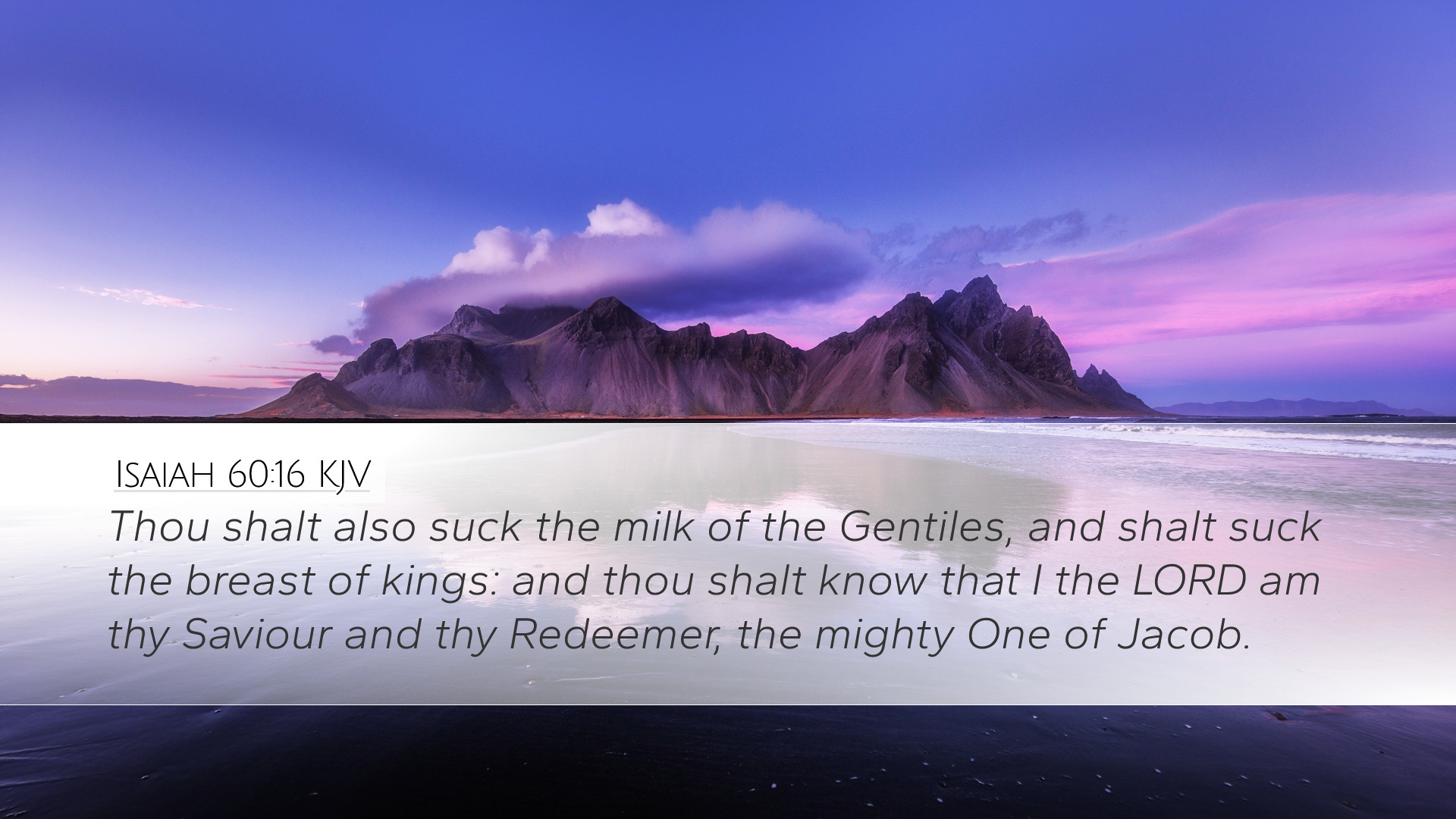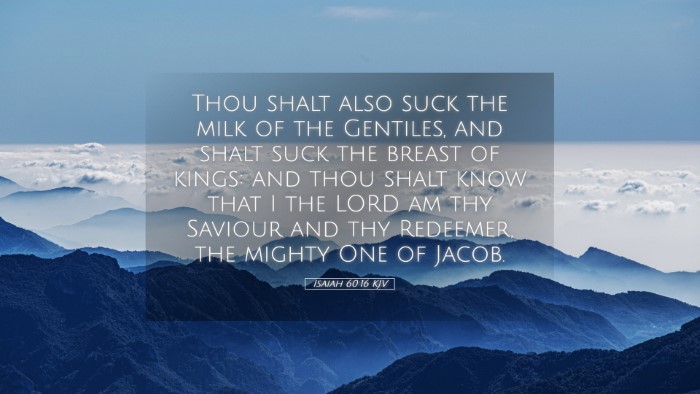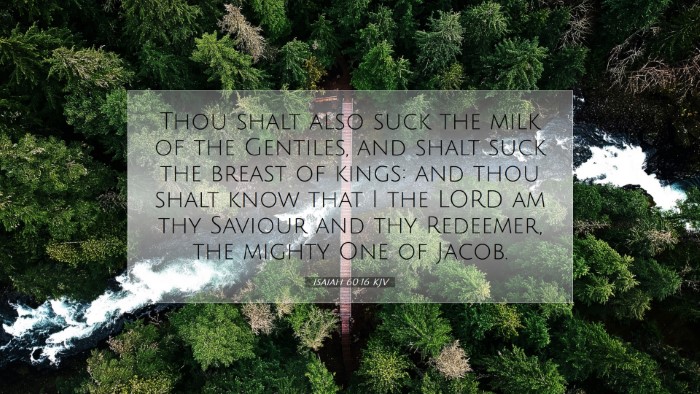Commentary on Isaiah 60:16
Isaiah 60:16 states: "Thou shalt also suck the milk of the Gentiles, and shalt suck the breasts of kings: and thou shalt know that I the Lord am thy Saviour and thy Redeemer, the mighty One of Jacob."
Introduction
The prophetic vision of Isaiah encompasses profound themes of salvation, restoration, and the exaltation of God's chosen people. Isaiah 60:16 captures the essence of divine provision and recognition of God's sovereign role in the lives of His people, especially in their interaction with the nations. This commentary synthesizes insights from various public domain sources to develop a deeper understanding of this verse's implications.
Historical Context
Isaiah prophesied during a time when Israel was facing significant adversity and exile. His messages often oscillate between judgment and hope as he calls the nation back to faithfulness. Isaiah 60 is part of a larger passage that speaks to the coming glory of the Lord upon His people and suggests a future restoration.
Exegesis of Isaiah 60:16
-
Divine Provision
Matthew Henry emphasizes that the imagery of sucking milk from the Gentiles symbolizes receiving abundance and prosperity from the nations. The “milk” reflects both material and spiritual sustenance provided by God through the Gentiles.
-
The Royal Favor
Albert Barnes expands on the significance of drinking from the “breasts of kings,” suggesting that this denotes receiving support and favor from high authorities. This illustrates how God can use powerful figures or nations to bless His people, perpetuating a image of dependence on God’s providence.
-
Recognition of God’s Sovereignty
Adam Clarke highlights the declaration of knowing the Lord as Savior and Redeemer. This acknowledges a covenant relationship where Israel realizes their dependence and gratitude towards God. It further underscores the sentimental backdrop that the richness of blessings flows from the knowledge of God’s saving grace.
Theological Implications
This verse raises several key theological points that resonate across various disciplines:
-
Universal Blessing
The idea that Israel will be nourished by Gentiles suggests a shift toward a universalism in God's redemptive plan. The blessings that flow from the nations indicate the opening of God's grace beyond the confines of Israel alone.
-
Covenant Relationships
The emphasis on knowing God as Savior and Redeemer reveals the essential nature of the covenant. It reminds scholars of the relational dynamics between God and His people, where acknowledgment of His deeds inspires trust and allegiance.
-
Hope and Restoration
This verse also serves as a powerful message of hope for those experiencing deprivation. It reassures that amidst trials, divine providence will come and provide both material and spiritual nourishment.
Practical Applications
The applications of Isaiah 60:16 transcend academic interpretation and touch on the lived experiences of believers:
-
Faith in Provision
Pastors and congregants alike can take heart in God’s promise of provision, learning to trust in divine sourcing regardless of earthly circumstances. It encourages believers to remain faithful in prayer and service, reflecting a dependence on God’s sufficiency.
-
Engaging with Culture
This verse calls for a constructive engagement with the broader culture. As believers partake in the blessings from the world, they are reminded to be agents of reconciliation and bearers of God's redemptive message.
-
Encouragement for Leaders
For theologians and church leaders, this passage highlights the responsibility to cultivate environments where God's provision through various means is recognized and celebrated, seeing all good gifts as coming from Him.
Conclusion
Isaiah 60:16 serves as a rich wellspring of insight regarding the nature of God's relationship with His people and the world. The interpretations drawn from the public domain commentaries reveal a layered understanding of divine provision, sovereignty, and the hope carried in covenant faithfulness. For pastors, students, theologians, and scholars, these insights not only enrich the spiritual tapestry of the Old Testament but also engage the present-day believer in a transformative journey toward recognizing God’s unending grace and involvement in their lives.


